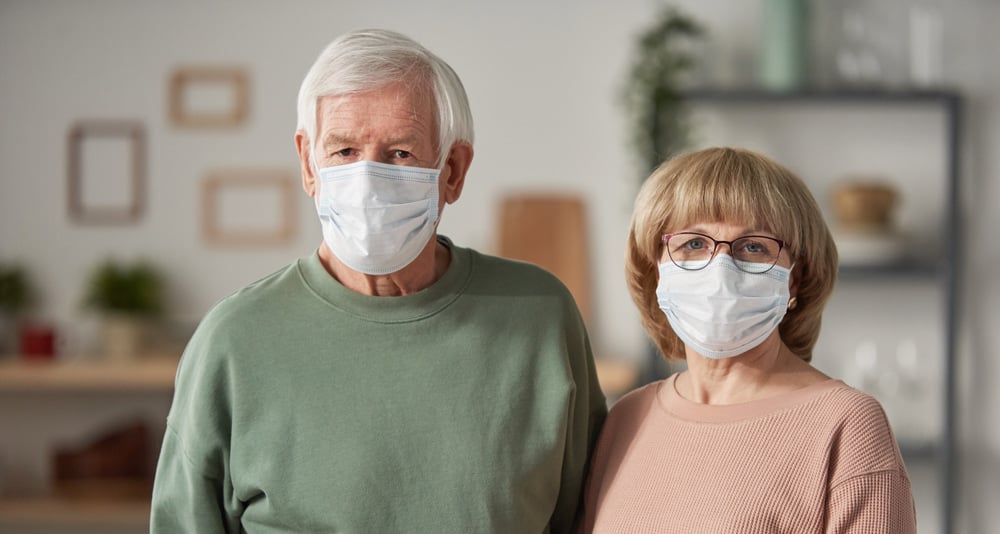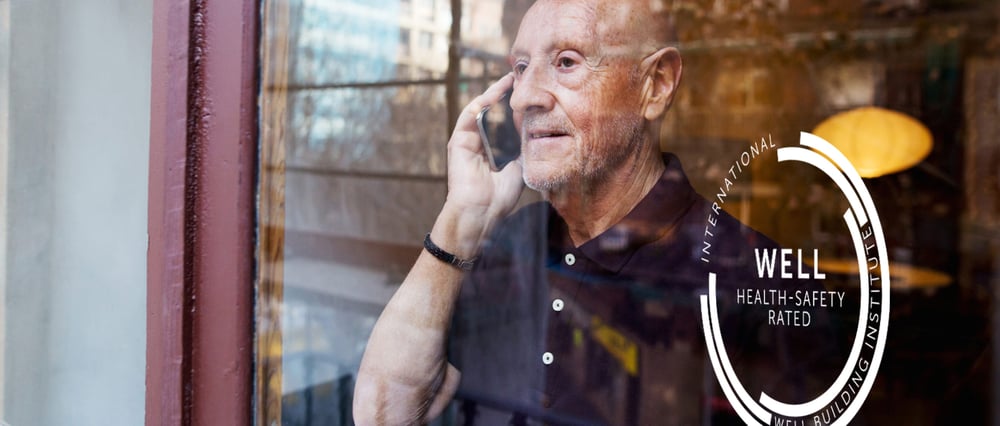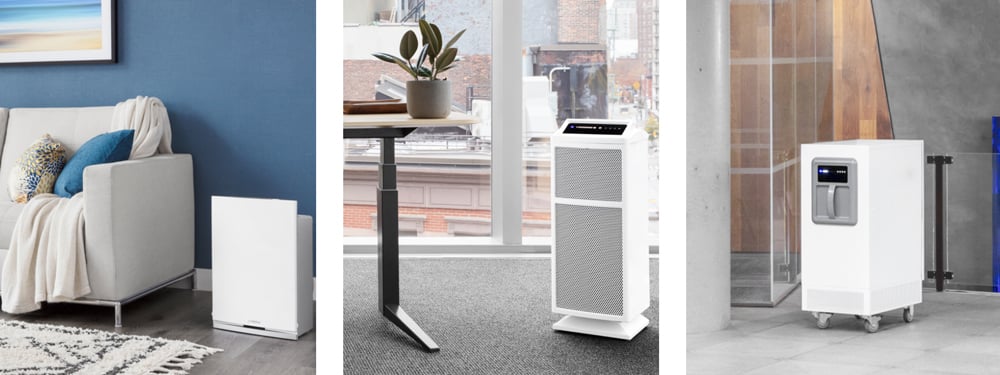The senior housing industry has learned many lessons over the last two years, perhaps few more important than the need for a renewed focus on indoor health and safety solutions. A recent survey by Delos’ Consumer Insights Team examined how senior living communities can earn the trust of their residents—and their residents’ families—with respect to indoor air quality (IAQ), which turns out to be a top concern for older adults.
To gather its data, Delos surveyed 983 adult Americans considering senior living either for themselves or their parents. The results show a striking shift in attitudes over the last two years, with 62% of respondents saying COVID-19 heightened their awareness of the importance of ventilation and air quality in indoor spaces. This awareness was already growing among senior housing providers before the pandemic, according to Delos Labs VP of Behavioral Sciences Carolina Campanella, but a more widespread understanding is crucial to public health.

Photo credit: AnnaStills
“The pandemic really showed the public that it’s a much broader concern, particularly once we start to think about disease transmission and, as a result, we see people educating themselves about the importance of IAQ overall,” she said. “I think this is particularly true with individuals considering senior living. Senior living communities were particularly hard hit during the pandemic and it really highlighted to everyone how important good IAQ is in these facilities.”
Air Quality is a High-Ranking Concern for Seniors, Families
According to the survey, 71% of individuals considering senior living for themselves or their relatives consider the health conditions in senior living facilities generally to be at best adequate. Indoor air quality is a high-ranking concern for both seniors and their adult children, with seniors themselves placing it in their top three concerns: below quality of care and safety, but above comfort and price. Although adult children of seniors rank it slightly lower, the fact that both parties consider it a major concern is an important development. Indeed, 62% of respondents said they would likely choose one facility over another if it prioritizes indoor air purification.
For Campanella, the lesson is clear: IAQ needs to be an important part of the conversation moving forward. Even with vaccine rollouts, we shouldn’t stop thinking about air quality mitigation strategies in senior living communities,” she said. “In addition to being a preventative measure for future outbreaks, there are many other ways in which IAQ can impact the health and quality of life of residents.”
“Customers Want Proof that Action Is Being Taken”
When it comes to air purification solutions in senior living facilities, the old adage is true: show, don’t tell. As for certain factors that would contribute most to their feelings of safety, a majority chose some sort of visual indication that a facility’s air purification system is working and just over 40% selected having a unit in their individual rooms. “Customers really want proof that action is being taken, which could be lights on a device, for instance, or a device alerting them of declining air quality,” Campanella said.
The survey also found overwhelming (93%) consumer interest in third-party health safety rating certification of a senior living community’s operational policies, maintenance protocols, and emergency plans. Certain respondents stressed, however, that they care about the third party’s legitimacy and credibility. Individual comments on the subject, stressed, for example, that “Certification from a *respectable* third party tells me that the facility is serious about providing decent care,” and that “It is also important to know how often the certification is checked or renewed.”

WELL Health-Safety Rating
All these responses offer important insights for owners and operators marketing their communities to prospective residents. “When creating marketing collateral or speaking to potential customers it’s important to describe what a facility is doing and the positive impact those actions can have on its residents,” Campanella explained. “Potential residents and their families indicated the importance of knowing about air quality monitoring and other indicators that strategies are working. Moreover, potential residents indicated the importance of having air purification both within private rooms and common areas. For relatives, for whom IAQ may not be top of mind, it’s also important to draw connections between good indoor air quality and the impact it can have on their relative’s physical and mental health and overall quality of life.”
Well Living Lab at the Mayo Clinic
The senior living survey dovetails with a recent classroom air quality study conducted by the Well Living Lab, (founded as a Delos and Mayo Clinic collaboration) and the University of Minnesota. Researchers set out to test whether portable air purifiers offer significant protection from viruses and other potentially dangerous airborne pathogens, ultimately finding that three purifiers in a 900-square-foot classroom space provided up to a fivefold reduction in airborne particle concentration in the air throughout the room. The purifiers also reduced the rate of infectious particles deposited on surfaces by 33%.
Both the classroom study and the senior living survey demonstrate the need for a renewed focus on indoor air quality, especially when it comes to vulnerable communities. “This is an important consideration in all indoor environments, but perhaps even more critically important in spaces occupied by individuals at a higher risk of severe disease from acquired infections such as COVID-19 due to other underlying health conditions and potentially compromised immune systems,” said Delos Co-Founder, COO and President Peter Scialla. “Notably, while concerns about pathogen transmission have been front and center, many other potential complications from poor air quality should be considered as well. Delos' approach is informed by extensive scientific research, and the scientific community has increased its focus on the effect of poor air quality not only in regard to pathogen transmission risk but also as it pertains to mental health, cognition, and sleep quality.”

Portable air purification units
Investing in indoor air quality might seem like it would require costly and labor-intensive renovations, but Scialla stressed that this isn’t the case. In fact, science indicates that the most impactful pathway to cleaner indoor air may also be the most economical one. “The benefits of localized air filtration include placing the mechanism of action as close to where people are convening as possible, rather than what amounts to a far distance if only solutions in the HVAC are considered,” he explained. “Fortunately, this also provides a method that is much more cost-effective - implementation costs, ongoing maintenance costs, and energy usage/costs - especially for aged buildings where achieving the same filtration outcome may not be as feasibly done in the HVAC alone.”
As Delos’ survey suggests, concerns over air quality in senior living aren’t likely to dissipate anytime soon. Even when the pandemic is long in the past, the fact will remain that IAQ is important in many more respects than just infection control—especially in senior living facilities. “Residents and families of residents should consider that improved air filtration in these settings can help address not only virus transmission risk, but also provide additional benefits of cleaner air,” Scialla concluded.

Posted by
SLIF heads to Carlsbad!
The One of a Kind Retreat for Senior Housing Leaders.
May 31 - June 2, 2026 | Carlsbad, CA
Learn More









Comments